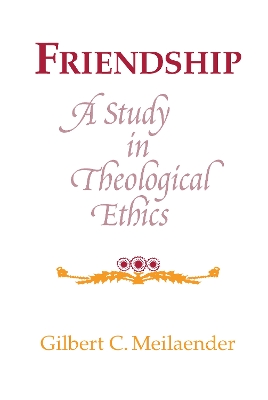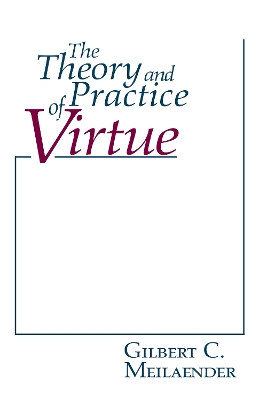Revisions: A Series of Books on Ethics
2 total works
Certain relationships are of profound importance for the moral life. Gilbert C. Meilaender explores some of the tensions which Christian experience discovers in one such relationship, the bond of friendship. These tensions help to explain why friendship was a more important topic in the life and thought of the classical civilizations of Greece and Rome than it has unusually been within Christendom. The bond of friendship (philia) involves special preference; Christian love (agape) is thought to be like the love of the heavenly Father who makes his sun rise on the evil and the good and sends rain on the just and the unjust. Philia requires that love be returned; agape is to be shown even the enemy, who does not love in return. Friendships sometimes fade away; Christians are enjoined to be faithful in love. These tensions have permeated our lives and helped to shape our world. We think politics a more important sphere than the private friendship bond. We seek fulfillment in and identify ourselves with our vocations - by which we now mean, work for pay - not our friendships. And in a world where politics and vocation are all-important, lasting friendships become more difficult to sustain. Friendship examines the tension between philia and agape and probes its significance for Christian thought and experience.
Many students of philosophical and theological ethics have recently experienced a renewed interest in what may be called an ethic of virtue. Such an ethic focuses less on the concept of duty-or doing-and more on being. Central to an ethic of virtue is a division of moral life that emphasizes character and character development or moral education. The Theory and Practice of Virtue presents a series of connected essays-drawing on the thoughts of such diverse figures as Josef Pieper, Plato Lawrence Kohlberg, and Martin Luther-which explore theories of virtue and the practical task of being virtuous. Meilaender follows his consideration of the conceptual difficulties of moral education with a discussion of the practical problems and dangers of attempting to teach virtue, and more generally, of the problems of observing an ethic which emphasizes virtue within a theology that emphasizes grace. Chapters devoted to particular virtues and vices-the vice of curiosity and the virtue of gratitude-explicitly illustrate the book's central thematic concerns.

